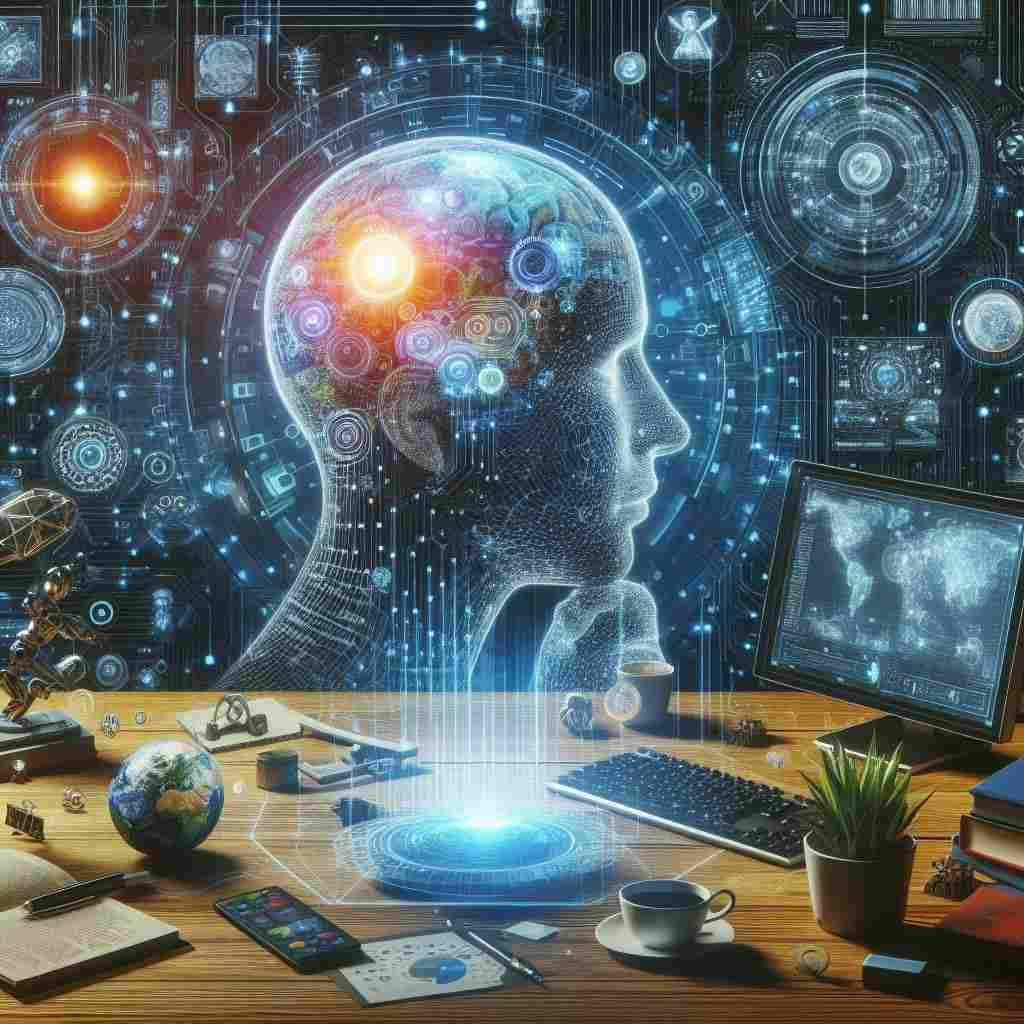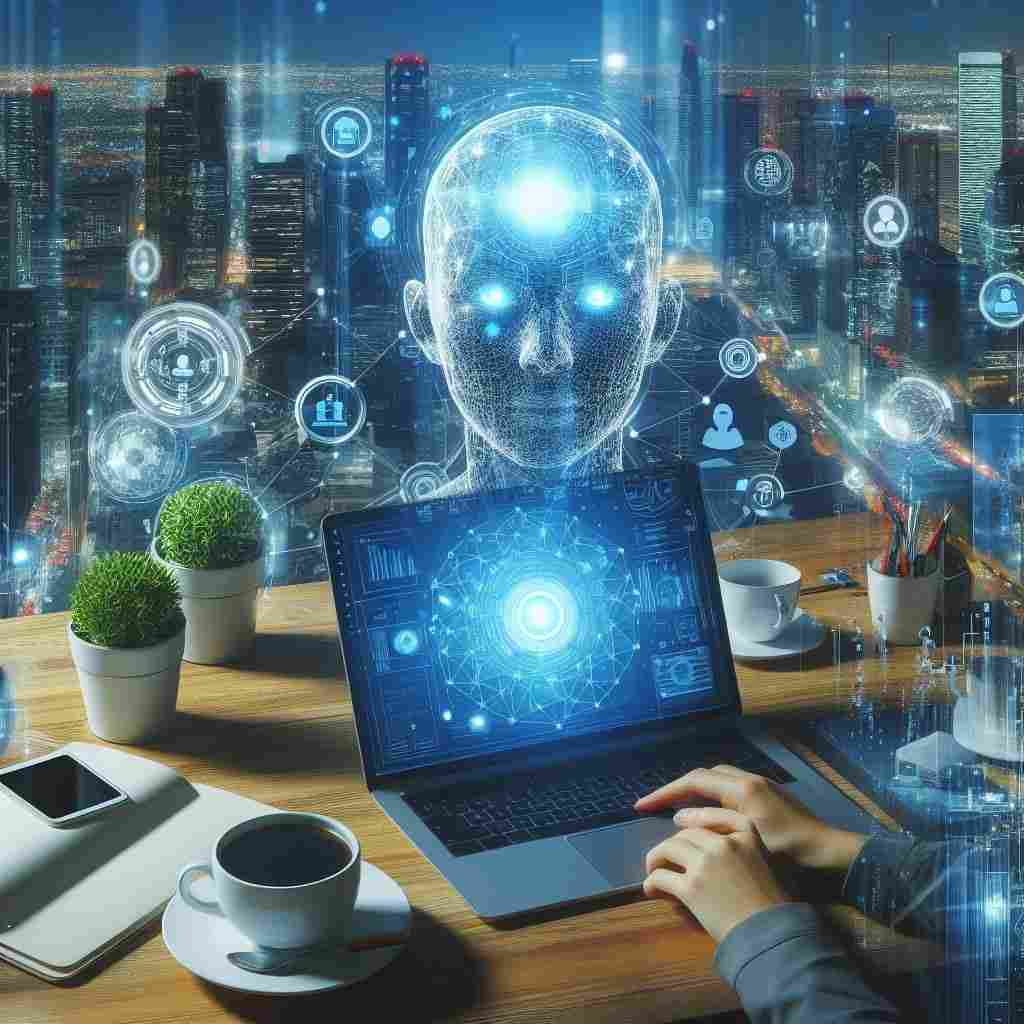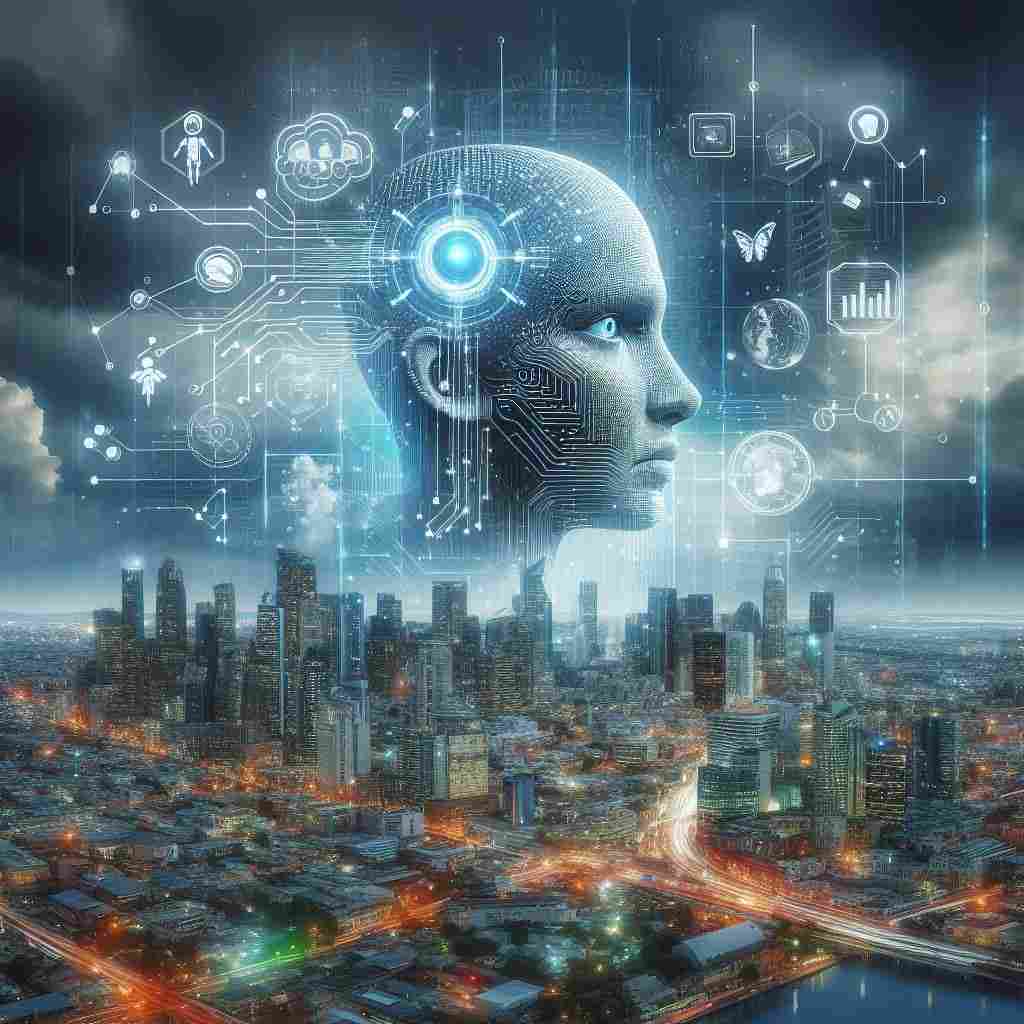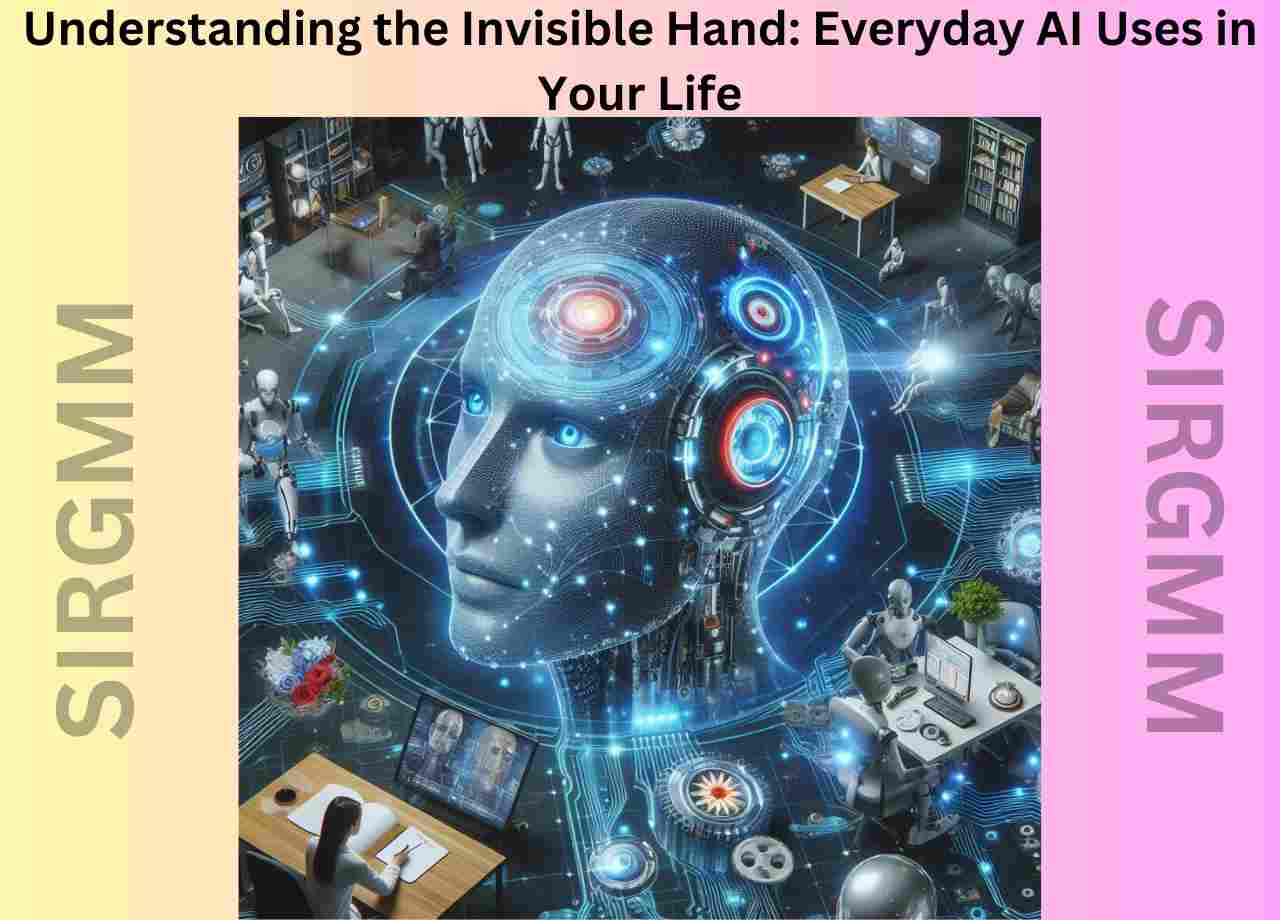Introduction: AI in Our Midst
Imagine a world where your morning coffee brews itself, your commute optimizes for traffic, and your workout routine personalizes to your fitness level. This isn’t science fiction; it’s the reality of everyday AI uses shaping our lives. Artificial intelligence (AI) is no longer confined to labs and movies; it’s woven into the fabric of our daily routines, subtly yet profoundly impacting how we live, work, and play.
This article delves into the impact on everyday AI uses, exploring its practical applications, potential benefits, and challenges we face in this era of intelligent machines. We’ll answer the question “What is AI used for in everyday life?” by showcasing its influence across various domains, from smart homes and personalized experiences to healthcare and transportation. So, buckle up as we embark on a journey through the world of personal AI, uncovering its transformative potential and the exciting future it holds.
Everyday AI Uses: From Mundane to Marvelous
The Personalized Assistant: Our smartphones have become more than just communication devices; they’re pocket-sized AI companions. Virtual assistants like Siri, Alexa, and Google Assistant learn our preferences, answer questions, set reminders, and even control our smart homes—all through the power of natural language processing and machine learning. These “everyday AI uses” save time, increase convenience, and provide a sense of digital companionship.
The Algorithmic Curator
Whether it’s the newsfeed on your social media app or the recommendations you see on online shopping platforms, AI algorithms are constantly working behind the scenes to personalize your experience. These algorithms analyze your past behavior, interests, and preferences to predict what you’ll find engaging or relevant. While this can be a valuable tool for discovering new things, it’s important to be aware of potential biases and filter bubbles created by these algorithms.
The Invisible Helper
Beyond the visible interfaces, AI is working in the background, powering various aspects of our daily lives. From fraud detection in banking transactions to spam filtering in our email, AI algorithms are silently safeguarding our digital well-being. In healthcare, AI is assisting doctors in analyzing medical images, identifying diseases early, and even developing personalized treatment plans.
The Entertainment Enhancer
The world of entertainment has also been transformed by AI. Streaming services use AI to recommend movies and shows based on your viewing history, while video games employ AI to create more realistic and engaging environments. Even music creation and composition are being revolutionized by AI, blurring the lines between human and machine creativity.
Everyday AI Uses

Revolutionizing Communication: Seamless Interaction with AI Assistants
- Smart Assistants: From Siri to Alexa – Your AI Companions
- Beyond Voice Commands: Textual Interactions and Personalized Responses
- The Future of Communication: AI-powered Collaboration and Understanding
Enhancing Entertainment and Information: Personalized Content Curation and Creation
- AI-driven Recommendations: Movies, Music, and News Tailored to You
- Content Creation with a Spark of AI: From Writing Assistance to Artistic Expression
- The Blurring Lines of Reality and Fiction: AI-powered Immersive Experiences
Optimizing Our Homes and Health: Smart Devices and Personalized Wellness
- Smart Homes: Automation and Convenience at Your Fingertips
- AI-powered Fitness Trackers and Health Monitors: Taking Care of Yourself
- The Future of Healthcare: AI-assisted Diagnostics and Personalized Medicine
Boosting Productivity and Efficiency: Simplifying Tasks and Saving Time
- AI-powered Calendars and Reminders: Never Miss a Beat
- Automating Repetitive Tasks: Freeing Up Your Time for What Matters
- The Future of Work: AI as a Collaborative Partner, Not a Replacement
Related: AI Can Design Bacteria-Killing Proteins from Startup
AI in the Home: Your Smart Sanctuary

Lights, Camera, Automation!
Step into a home where lights adjust to your mood, thermostats learn your preferences, and appliances anticipate your needs. This is the magic of smart homes, powered by AI. Smart speakers like Amazon Echo and Google Home are becoming the central hubs of personal AI, allowing you to control devices with voice commands, set routines, and receive personalized information. From automatically adjusting lighting to playing music based on your preferences, these everyday AI uses to create a seamless and comfortable living environment.
Beyond Convenience: Enhancing Security and Efficiency
AI in the home goes beyond mere convenience. Smart security systems equipped with facial recognition and motion detection can deter intruders and provide peace of mind. Intelligent appliances learn your usage patterns and optimize energy consumption, reducing your carbon footprint and saving you money. Everyday AI uses like automatic appliance shut-off and leak detection can prevent costly accidents and ensure your home’s safety.
AI in the Workplace: Boosting Productivity and Creativity
The workplace is also undergoing an AI revolution. Machine learning algorithms are automating repetitive tasks, freeing up human employees to focus on more strategic and creative endeavors. AI-powered chatbots handle customer service inquiries, while data analytics tools provide insights to optimize workflows and decision-making. Personal AI assistants like Grammarly and Evernote enhance productivity by offering grammar suggestions and streamlining note-taking. These everyday AI uses are transforming the workplace into a more efficient and collaborative environment, allowing humans and machines to work together in harmony.
The Rise of the AI-Powered Workforce

AI is not just automating jobs; it’s creating new ones. Data scientists, robotics engineers, and AI developers are in high demand as companies invest in building and implementing intelligent systems. The future of work will likely involve a blend of human and AI capabilities, requiring employees to develop skills in collaboration, critical thinking, and problem-solving to thrive alongside intelligent machines.
AI in Healthcare: Personalized Medicine and Improved Outcomes
The healthcare sector is witnessing a significant AI impact. AI algorithms are analyzing medical data to predict disease outbreaks, personalize treatment plans, and even assist in surgery. Medical imaging analysis tools powered by AI can detect tumors and other abnormalities with greater accuracy and speed, leading to earlier diagnoses and better treatment outcomes. Everyday AI uses in healthcare also extend to wearable devices that monitor vital signs and provide real-time health insights, empowering individuals to take charge of their well-being.
The Future of AI in Healthcare: Precision Medicine and Beyond
The potential of personal AI in healthcare is vast. Imagine a future where AI-powered robots assist surgeons in complex procedures, or where personalized medicine tailors treatments to each individual’s genetic makeup. These advancements hold the promise of improving healthcare accessibility, affordability, and overall quality of life.
The Future of AI: Opportunities and Challenges
While the “everyday AI uses” we’ve discussed show the transformative potential of this technology, the future of AI holds both opportunities and challenges. As AI becomes more sophisticated, it will undoubtedly continue to reshape our lives, impacting everything from the nature of work to the definition of privacy.
Opportunities
- Enhanced Productivity and Efficiency: AI can automate repetitive tasks, freeing up human time for more creative and strategic endeavors. This can lead to increased productivity across various industries and sectors.
- Personalized Solutions: AI can tailor its services and products to individual needs and preferences, offering a more customized and fulfilling experience for everyone.
Challenges
- Job displacement: As AI automates more tasks, there is a risk of job displacement, particularly in sectors with routine and repetitive work. This raises concerns about unemployment and the need for retraining and reskilling initiatives.
- Privacy concerns: The increased collection and analysis of personal data by AI raises concerns about privacy and data security. It’s important to establish clear regulations and guidelines to protect individual privacy in the age of AI.
Conclusion: Navigating the AI Revolution
The Future of Everyday AI: Embracing the Potential, Addressing the Concerns
- AI’s Impact on Society: A Balancing Act of Progress and Responsibility
- Embracing the Power of AI: A Guide to Safe and Ethical Interactions
- The Final Word: Shaping the Future of AI Together

